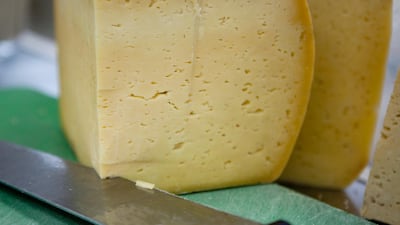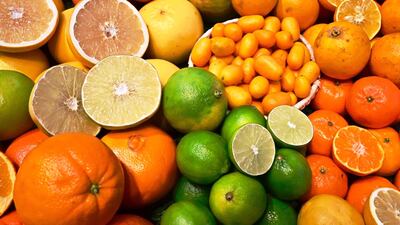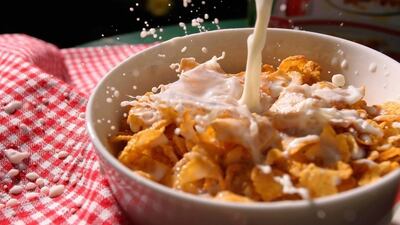The Ministry of Education has served up a lunchbox ban on junk foods and fizzy drinks in a new bid to promote a healthier lifestyle for children.
Parents are being prohibited from packing "unhealthy" food items such as processed meats, chocolate bars and spreads, peanuts and even chewing gum for pupils studying at government schools in the country under a new order issued by the authority.
School principals are being urged to strictly enforce the canteen charter, while parents are being encouraged to pack healthier food.
_________
Read more:
_________
A circular outlining the junk food ban has been sent to Ministry of Education schools.
"Children getting unhealthy lunches is a problem," said Aisha Alsiri, acting Director of Health and Physical Fitness at the Ministry of Education.
"It is not acceptable for children to bring these food items to school
"These sugary products and unhealthy food items were already not being sold at school, but this is aimed at parents.
"We have a leaflet that we sent to the parents to educate them regarding healthy foods.
"We already have the canteen project for five years now and we don't provide any unhealthy food in the canteen.
"Now, we have announced the items that children are not allowed to bring from their homes.
"We are encouraging them to eat healthy food at school and at home. We want to teach them hot to build a healthy lifestyle."
Chocolates, crisps, soft drinks and chewing gum have been banned from school canteens in Dubai since 2011.
_________
Read More:
Junk food banned from every Dubai school canteen
UAE looks at ban on fast food outlets near schools
UAE steps up efforts to ban unhealthy food in schools
_________
The warning to parents comes as a fresh measure to tackle childhood obesity, which is a growing concern nationwide.
The National has previously reported that about one in three children in the UAE is either obese or overweight.
Dr Mohamed Embabi, a specialist paediatrician at Bareen International Hospital in Mohamed Bin Zayed City, Abu Dhabi said the move is a "step forward" but believes and parents and schools can still do more to improve the health of children.
He said that while parents are concerned when their child gains weight they are often not fully aware of the health risks associated with a poor diet.
Dr Embabi said cafeterias and shops near schools also need to be monitored to ensure children don't purchase unhealthy food.
"It is a good step forward. There is a need to train and educate parents, and create an awareness campaign for them.
"In some schools, we still find a poor quality buffet. I see parents coming and saying no one cares at the school."
Dr Embabi said that parents complain that when they give children healthy food, the lunch box comes back uneaten.
"Parents say 'If we don’t give them, then the child will find noodles and fried chicken in the cafeteria.'
"Many young children come and they have vomiting and diarrhoea after eating unhealthy food. This is because the child uses the pocket money to go and buy unhealthy food," Dr Embabi said.
He advised parents who give packed lunch to avoid giving the child pocket money, to cut the risk of them buying unhealthy food from other sources.
The doctor warned parents that eating unhealthy food is detrimental to a child's development.
"Junk food doesn’t have vitamins, protein, minerals that growing children need."
He said that parents give such food as they "find it easy."
"Children like it because it is spicy and appetising. But its harmful in the long term for their brain development.
"The child needs something to help their vision and brain development and such food items will not give them energy. They should not be eating this on a daily basis.
"Children need proteins, carbohydrates, vitamins as well as essential amino acids for brain and vision development.
"Otherwise the child will get anaemia, food-related diseases, nutritional deficiencies, rickets, vitamin deficiencies and vision problems."
His suggestions for lunch include a boiled egg, cheese, dairy products, food containing protein like cereals, yogurt, fruits, vegetables, milk products, chicken and homemade burgers.
In April 2018, The Dubai Health Authority announced a plan in which private schools had to ensure they were encouraging pupils to eat five portions of fruit and vegetables per day, while physical education classes would need to last a minimum of 150 minutes per week.







